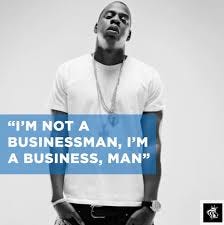Thought for the week: conflict is natural and normal and ironically, conflict brings us together. We get to decide how much pain comes from conflict, will it be generative or degenerative?
My dad is currently working through selling his business. He’s been a part owner of a business for my entire life, many of his later years have not involved him actually working at the business, just reaping the profits of the business.
I, on the other hand, have never owned a business though I did have several small business like income streams that never amounted to much.
I’m not going to get into the ethical considerations of any of this but one thing that is glaringly obvious to me is that the opportunity for gain in our society so clearly advantages the business owner.
Employees are in the business of paychecks. You get a paycheck at the end of the month and you use it to pay expenses from your month. The cycle rolls on. Maybe you beg your boss for a raise and you get it, but ultimately you get what you get.
Smart employees invest some of this income into ownership of companies, we call this stocks. This is the closest a lot of us will get to ownership.
I’m 43. I’m currently earning about 50% of my salary through my investments, and this is ownership in action. The more my investments increase in size, the more it earns and thus the more it has to grow.
A simple math illustration - If you get successive 10% gains
$1000 becomes $1100 becomes $1210 - so $210 increase
$10,000 becomes $11000 becomes $12,100 - so $2100 increase
$100,000 becomes $110,000 becomes $121,000 - so $21,000 increase
That is, multiplication on bigger ownership increases the size of your ownership profits.
I promise this is going somewhere.
The other important piece - you can match the gains of the smaller number with a lower percentage increase. So the $100,000 not only is more likely to earn more but even with less return, it out paces the big return on the smaller amount.
Now compare this back to the employee…
Employees don’t generally get ownership but they do get salary. The salary is a stable and predictable income that allows the employee to know their cash flow each month.
Why does the business owner offer this cash flow? Because it offers them the opportunity to take the surplus value provided by the employee.
So, theoretically, the value you provide to a company may be much more than you actually make in income but it could be highly variable.
So if your total compensation is $100k (including benefits, etc), you may actually be worth a million dollars to the company, fluctuating across 5 years. Obviously this is just a guess and may greatly depend on your job - some employees are cost centers required to keep the business operating (IT for example).
But the question is whether that additional benefit is worth it to you as an employee or whether you prefer to have the stability of the salary and not capture the additional value for yourself.
So what’s my point?
Someone asked me the other day what to do in the age of AI. I think the impact of AI on jobs will really vary depending on who you are.
My suggestion though is to make yourself an owner in every way you possibly can.
My thesis is that AI and AI agents will essentially offer us all the opportunity to hire a bunch of junior employees. If you want to run a business, this is one of your best chances.
If you’re not interested in being an entrepreneur, create ownership opportunities by investing and buying assets that increase in value (your home doesn’t count). Buy stocks, property, anything that can be used to multiply value.
And the final thing, AI will never ever (or will social media) replace things that require hands on human interaction. If you’re looking for a job, ask how you could do it in person and off the computer.




